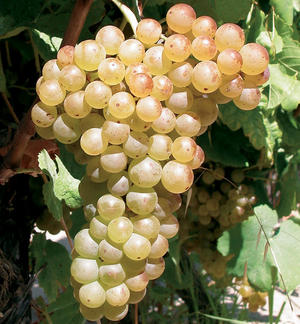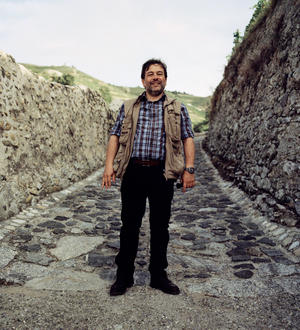2010 Ermitage Blanc, l'Ermite, M. Chapoutier, Rhône
- White
- Dry
- Full Bodied
- Marsanne
Ready, but will improve
- Jancis Robinson MW
- 18/20
- Robert Parker
- 98-100/100
Product: 20108007153
Description
From a tiny 0.5 hectare site of poor shallow granitic soils, located just behind the chapel at the top of the hill of Hermitage, this is a fine expression of the pure Marsanne. Flinty and dominated by notes of acacia, lemon grass and wild honey, this is one of the great white wines of the world, stylistically somewhere between a very great dry Loir e and a Montrachet. Shame there are only 2000 made per vintage. Bottles, that is, not cases.
Simon Field MW, BBR Buyer, February 2012
Simon Field MW, BBR Buyer, February 2012
Amongst the most celebrated, rarest and over-subscribed wines in the Rhône Valley, the Selections Parcellaires are the finest expressiosn of terroir, mostly the soils of the Hill of Hermitage, the minutiae of which are painted with pointillist attention to detail and unparalleled expertise. Inevitably they are made in modest quantities. Do not be too taken aback by the fact that Michel drops his ‘h’s when describing his Ermitage. It is not an estuary French, rather an acknowledgement of ancient spelling.
Colour White
Sweetness Dry
Vintage 2010
Alcohol % 14
Maturity Ready, but will improve
Grape List Marsanne
Body Full Bodied
Producer Maison Chapoutier
Critics reviews
Jancis Robinson MW 18/20
Ice-maiden nose – don’t touch me! Very intense but introvert and nervy. Very mineral. Reverberates on the finish. Magnificent! jancis_robinson_mw MW & julia_harding MW - www.JancisRobinson.com - 20 Dec 2011)
Robert Parker 98-100/100
From the very top of the granite dome of Hermitage, the 2010 Ermitage L’Ermite Blanc is absolutely remarkable. One hundred percent old-vine Marsanne, this wine tastes like a liqueur of crushed rocks with hints of lemon and white peach oils, buttered brioche, wet steel and gun flint. With floral notes as well as such an intense minerality, this thick, unctuously textured wine still has remarkable acidity. It should be drunk over the next 50-75 years. All of these wines are produced from rigidly cultivated, bio-dynamically managed vineyards. That has been the rule since Michel Chapoutier first took over this firm in the late 1980s. Now, with over 20 years of biodynamic viticulture under his belt, Chapoutier remains committed to this rather radical style of organic farming. He believes the effect is to reduce rot in damp, rainy vintages…Refusing to acidify, chaptalize, or touch the wines in any way, he clearly wants every wine to capture the very essence of its terroir and vintage personality... As for the selections parcellaires of 2010 reds, Chapoutier likes this vintage almost as much as 2009, but feels it is very different, emphasizing more acidity and minerality, whereas 2009 is a combination of pure power, concentration and great potential longevity. Michel Chapoutier considers the 2009s, which are all in bottle, to be among the greatest wines he has ever produced, equaling his finest wines of 2006, 2003, 1999, 1990 and 1989. (robert_parker - Wine Advocate #197 Oct 2011)
About this wine

Marsanne
Marsanne is the predominant white grape variety grown in the Northern Rhône where it is used to produce white St. Joseph, Crozes-Hermitage, and Hermitage. It is a tricky grape to cultivate, being susceptible to diseases and being particularly sensitive to extreme climatic changes - if growing conditions are too cool, then it fails to ripen fully and produces thin, insipid wines, while, if too hot, the resultant wines are blowsy, overblown and out of balance.
Find out more

Maison Chapoutier
Applying his usual break-neck rigour to the presidency of InterRhône has not in any way distracted Michel Chapoutier. His range is more impressive in scope than ever, providing the most complete dissection of the region’s styles and terroir. Founded in 1808, Michel took charge in 1988 and became the seventh generation of his family to run the domaine. Since then, quality has soared and he is now farming all his vineyards biodynamically. He also invests in new winemaking projects across the globe, as far-flung as Australia. His children, in particular his daughter, Mathilde, are now increasingly involved in the day-to-day management of the maison, bringing with her her entrepreneurial skills and vision.
Find out more
